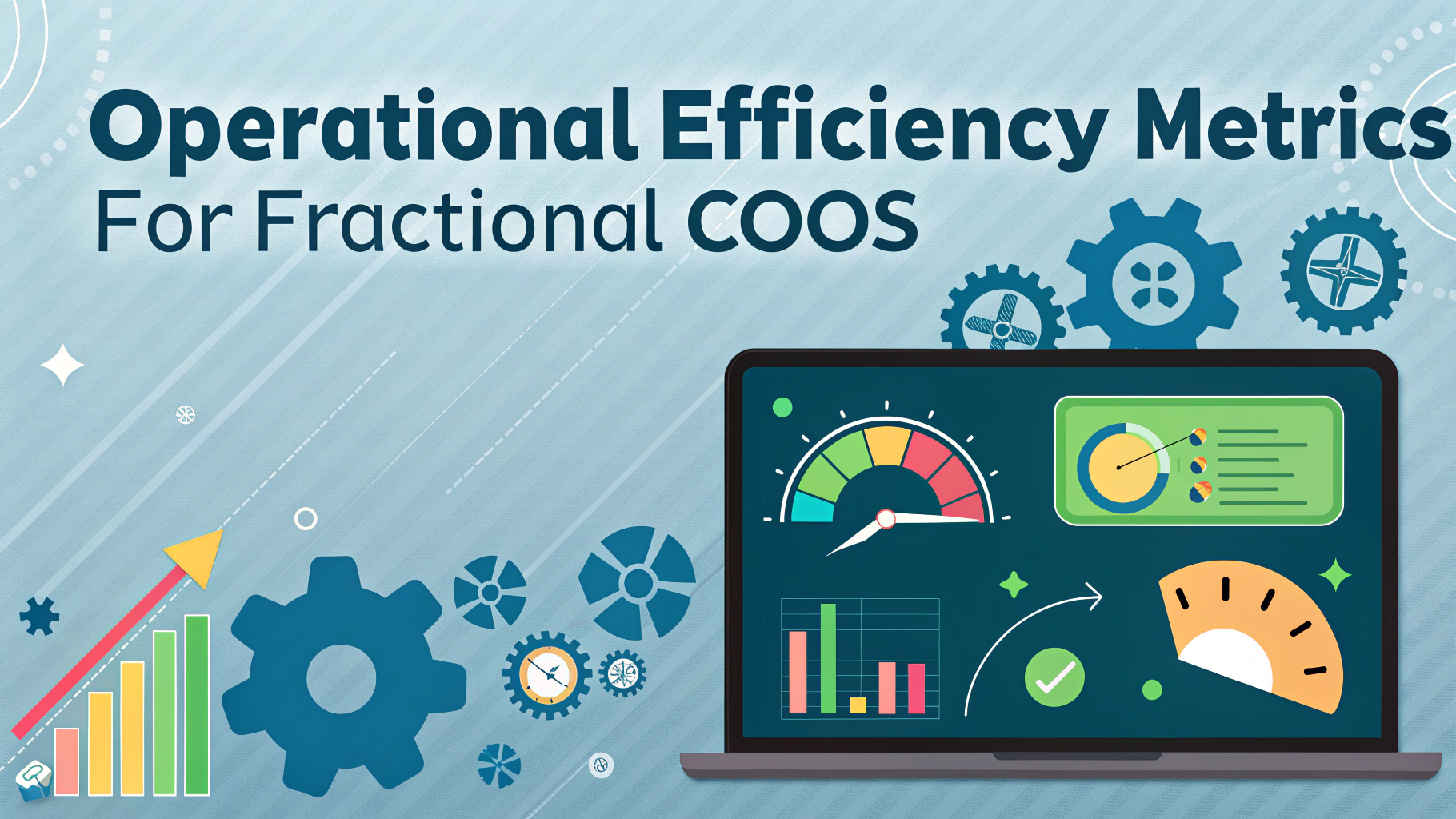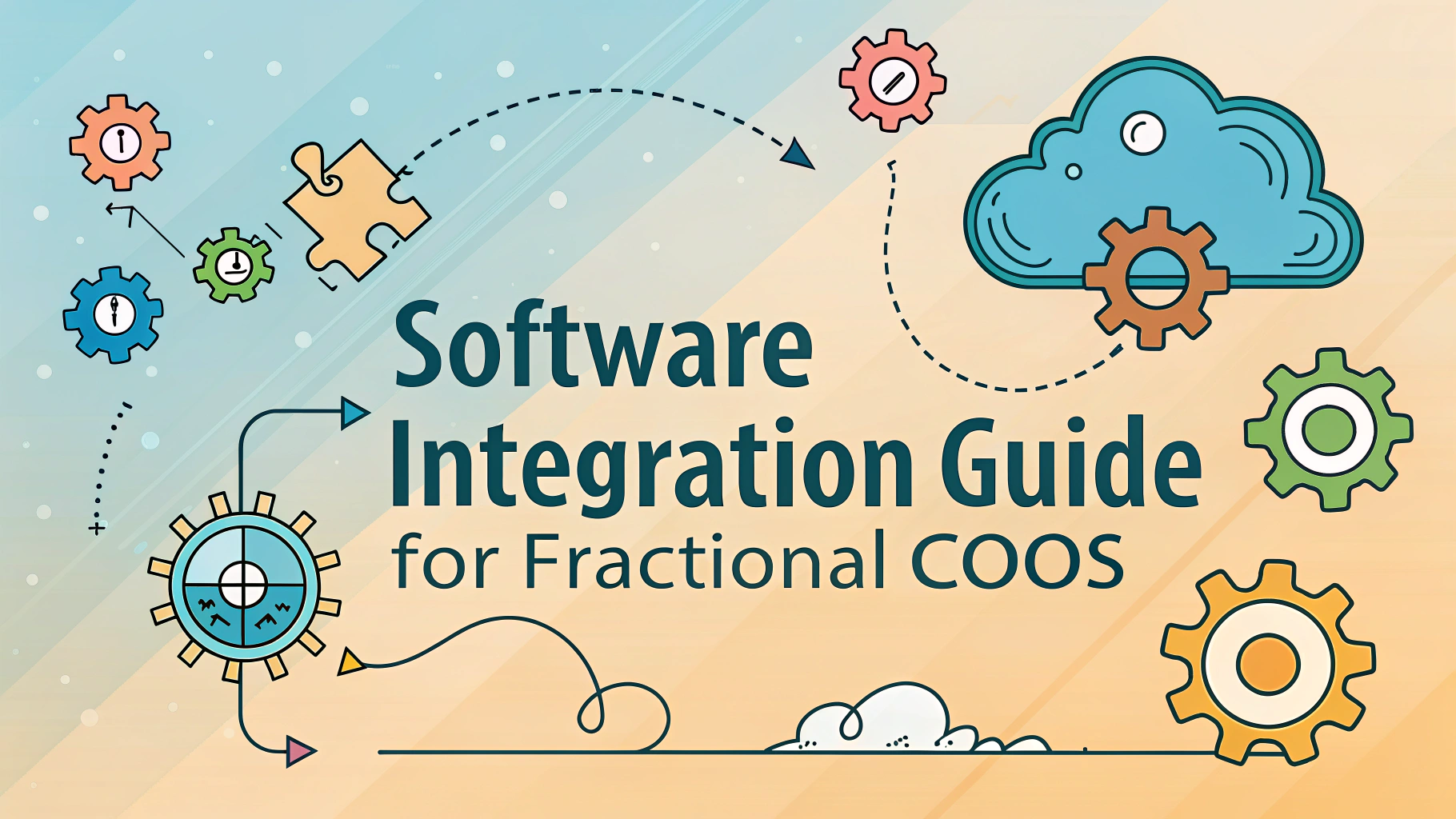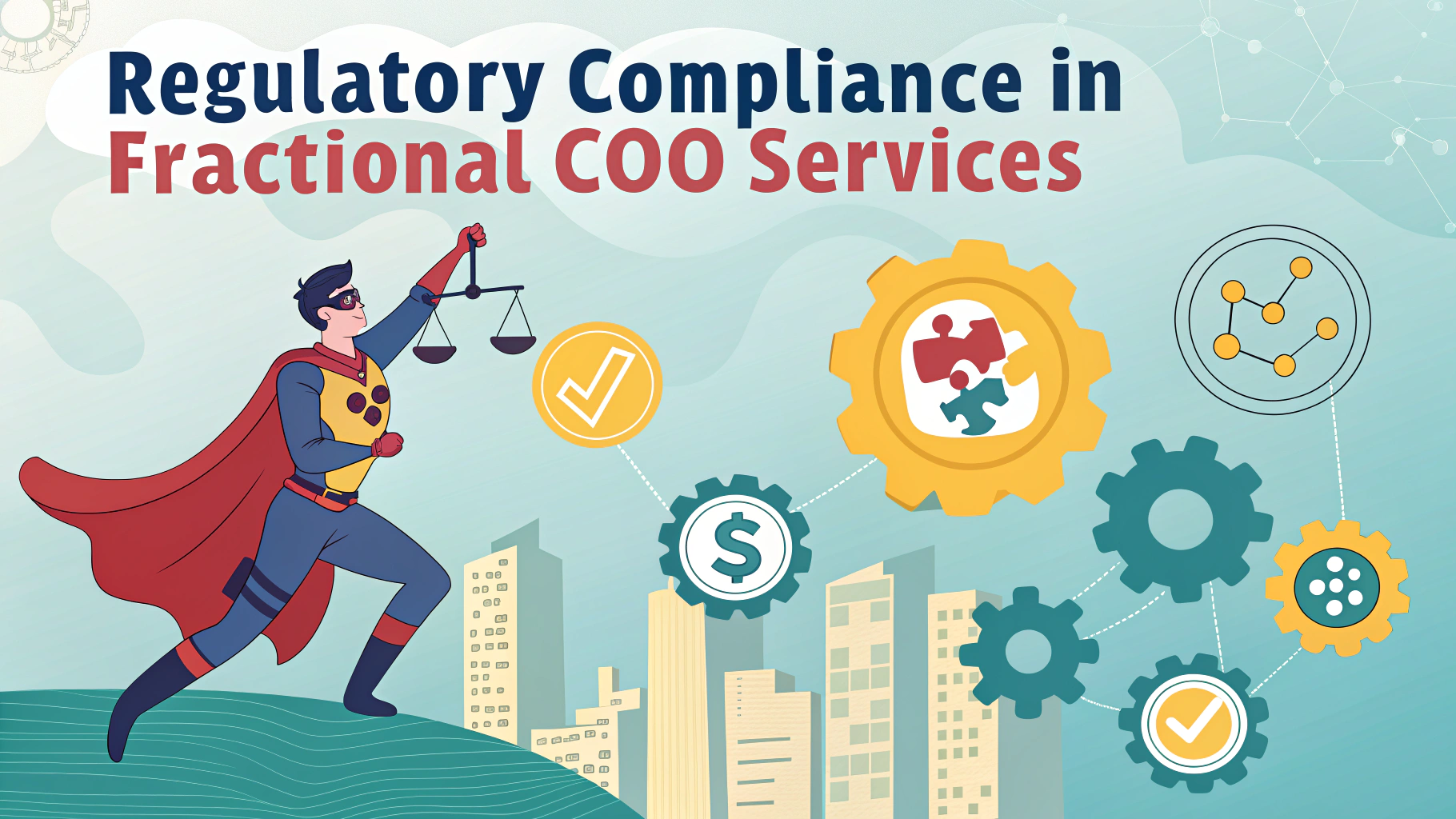Selecting the right fractional COO can significantly impact your company’s operational efficiency and growth trajectory.
A thorough interview process helps identify candidates who align with your organization’s goals and possess the specific expertise needed for your business stage.
This guide outlines essential questions to evaluate fractional COO candidates effectively, focusing on experience, leadership style, and strategic capabilities.
Strategic Vision & Planning
- How would you assess our current operational structure?
- What metrics would you prioritize in measuring operational success?
- Describe your approach to creating and implementing strategic plans
- How do you balance short-term wins with long-term strategic goals?
Operational Experience
- Share specific examples of operational improvements you’ve implemented
- How do you identify and eliminate operational inefficiencies?
- What’s your experience with process automation and digital transformation?
- Describe a challenging operational problem you solved and your approach
Team Leadership & Management
- How do you approach building and managing remote teams?
- What’s your method for developing leadership capabilities in others?
- Describe your communication style with different stakeholders
- How do you handle conflict resolution between departments?
Resource Management
- What’s your approach to budget optimization?
- How do you prioritize resource allocation across departments?
- Describe your experience with vendor management and negotiations
- What tools do you use for resource planning and tracking?
Change Management
- How do you implement organizational changes while maintaining team morale?
- What’s your experience with managing resistance to change?
- Describe a successful change management initiative you led
- How do you ensure sustainable adoption of new processes?
Time Management & Availability
- How many hours per week can you dedicate to our organization?
- What’s your preferred schedule for meetings and check-ins?
- How do you handle emergency situations outside regular hours?
- What other commitments might impact your availability?
Industry Knowledge
- What experience do you have in our specific industry?
- How do you stay current with industry trends and best practices?
- What industry-specific challenges do you anticipate?
- How would you leverage your cross-industry experience?
Making Your Final Decision
Request references from previous clients and companies where the candidate has served as a fractional COO.
Consider setting up a paid trial period to evaluate the working relationship and results.
Document expectations, deliverables, and communication protocols in a clear service agreement.
| Key Assessment Areas | Red Flags | Green Flags |
|---|---|---|
| Experience | Vague answers, no measurable results | Specific examples, quantifiable outcomes |
| Availability | Overcommitted, inflexible schedule | Clear time allocation, emergency protocols |
| Communication | Delayed responses, unclear expectations | Prompt, transparent communication style |
Risk Assessment & Mitigation
- What risk management frameworks have you implemented?
- How do you identify potential operational risks?
- Describe your approach to business continuity planning
- What preventive measures do you typically put in place?
Technology Integration
- What technology stack do you recommend for operational efficiency?
- How do you evaluate new technology solutions?
- What’s your experience with system integrations?
- How do you ensure ROI on technology investments?
Performance Metrics & Reporting
- What KPIs do you typically track?
- How do you structure performance reviews?
- What reporting systems have you implemented?
- How do you communicate performance data to stakeholders?
Scaling Operations
- What’s your experience with scaling businesses?
- How do you maintain quality during rapid growth?
- What systems do you implement for scalability?
- How do you balance growth with operational stability?
Setting Your Fractional COO Up For Success
Establish clear objectives and success metrics from day one. Provide necessary access to tools, data, and team members. Schedule regular check-ins and progress reviews.
| Success Factor | Implementation Strategy | Expected Outcome |
|---|---|---|
| Clear Communication | Regular meetings, documented processes | Aligned expectations, efficient execution |
| Resource Access | Tools, data, team availability | Streamlined operations, faster results |
| Performance Tracking | KPI monitoring, regular reviews | Measurable improvements, accountability |
Remember that finding the right fractional COO is an investment in your company’s future. Take time to thoroughly evaluate candidates and establish clear frameworks for success.
FAQs
- What experience should I look for when hiring a fractional COO?
Look for candidates with 10+ years of executive operations experience, proven track record scaling businesses, and expertise in your industry or similar business models. - How do I assess a fractional COO’s strategic thinking abilities?
Ask them to describe past situations where they developed and executed strategic initiatives, their methodology for identifying opportunities, and examples of successful business transformations. - What’s the typical time commitment for a fractional COO?
Most fractional COOs work 10-20 hours per week, though this can vary based on company needs. Clarify their availability and flexibility during peak periods. - How should compensation be structured for a fractional COO?
Common models include hourly rates ($200-500/hour), daily rates, monthly retainers, or project-based fees. Some may also include performance incentives or equity components. - What metrics should be used to evaluate a fractional COO’s performance?
Key metrics include operational efficiency improvements, cost reductions, process optimization results, team performance enhancement, and specific project completion metrics. - How do I assess a fractional COO’s ability to work with my existing team?
Ask about their leadership style, previous experience managing remote teams, communication approach, and examples of successful team integration in past fractional roles. - What systems and technology expertise should a fractional COO possess?
They should be proficient in project management tools, ERP systems, data analytics platforms, and have experience implementing operational technology solutions. - How do I evaluate a fractional COO’s crisis management capabilities?
Request examples of how they’ve handled operational crises, their risk management approach, and specific instances where they’ve led teams through challenging situations. - What should I look for in terms of industry-specific knowledge?
While direct industry experience is valuable, look for transferable skills and success in similar business models. They should demonstrate quick learning ability and adaptability. - How do I assess their ability to scale operations?
Look for experience in scaling companies of similar size, successful implementation of scalable processes, and specific examples of growth metrics achieved in previous roles.








